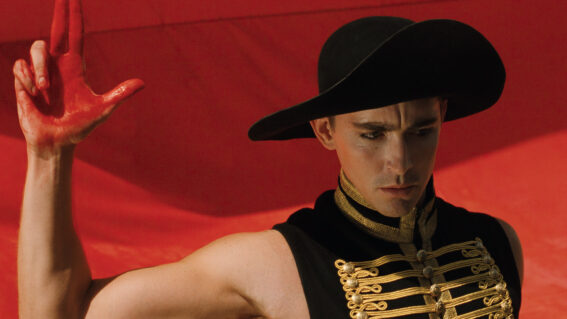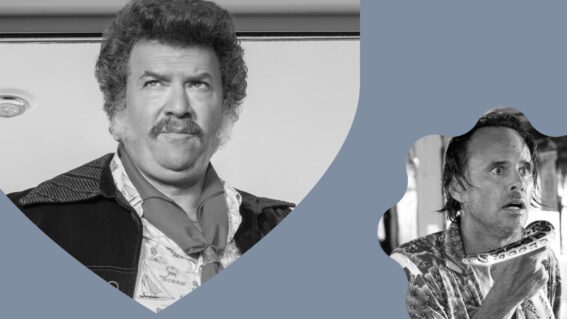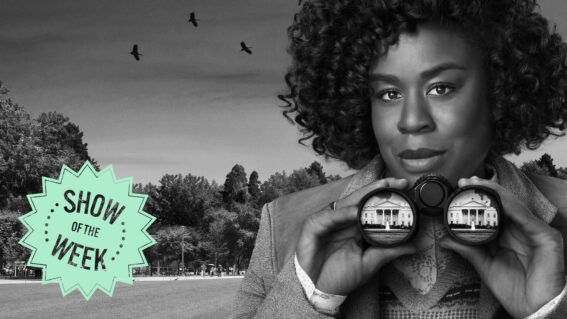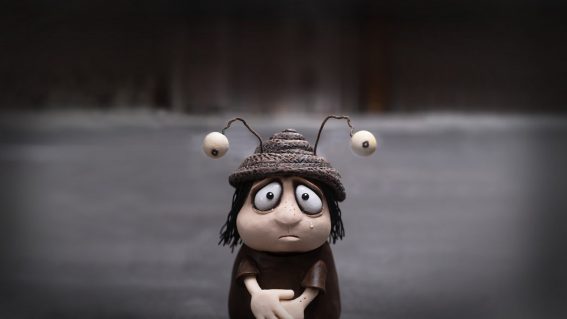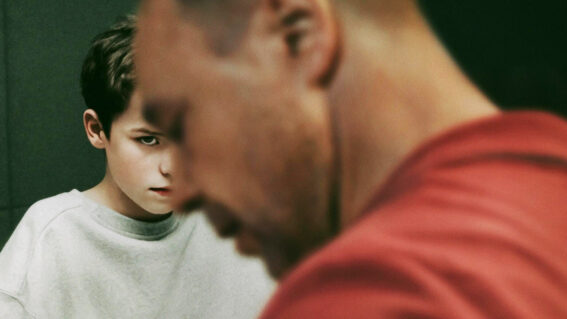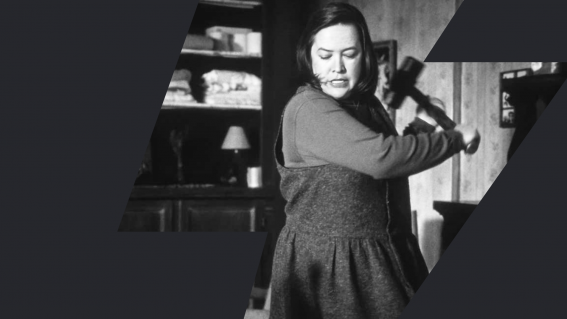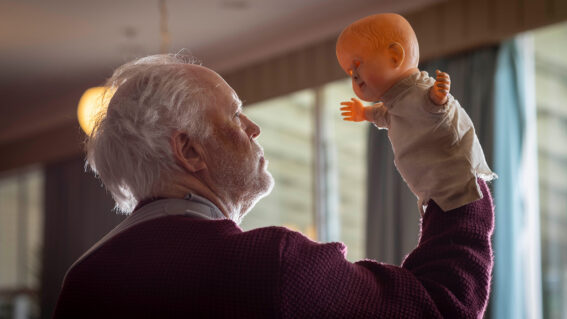Interview: ‘Wyrmwood: Road of the Dead’ director Kiah Roache-Turner
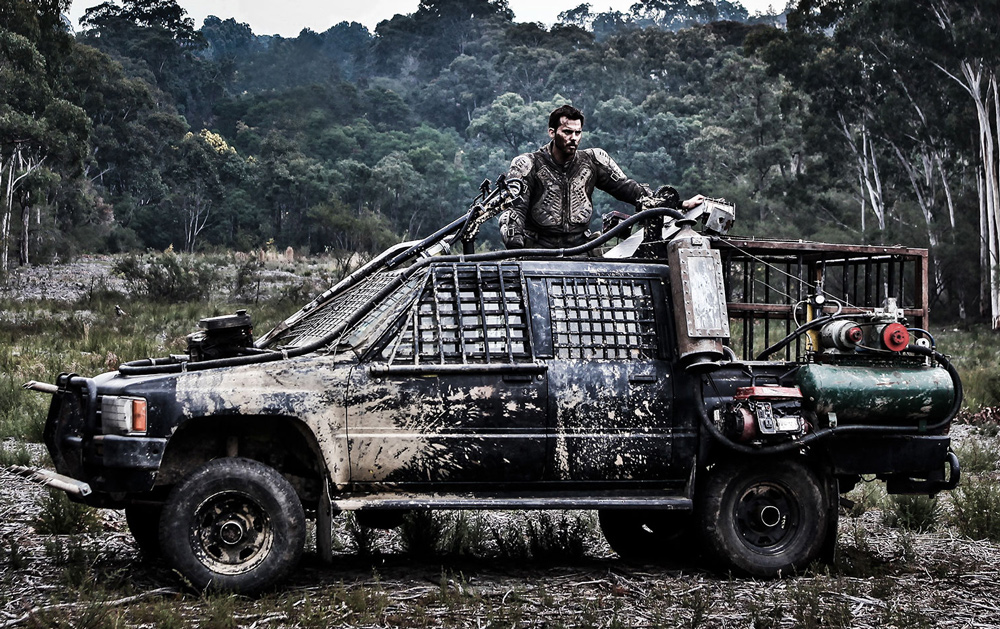
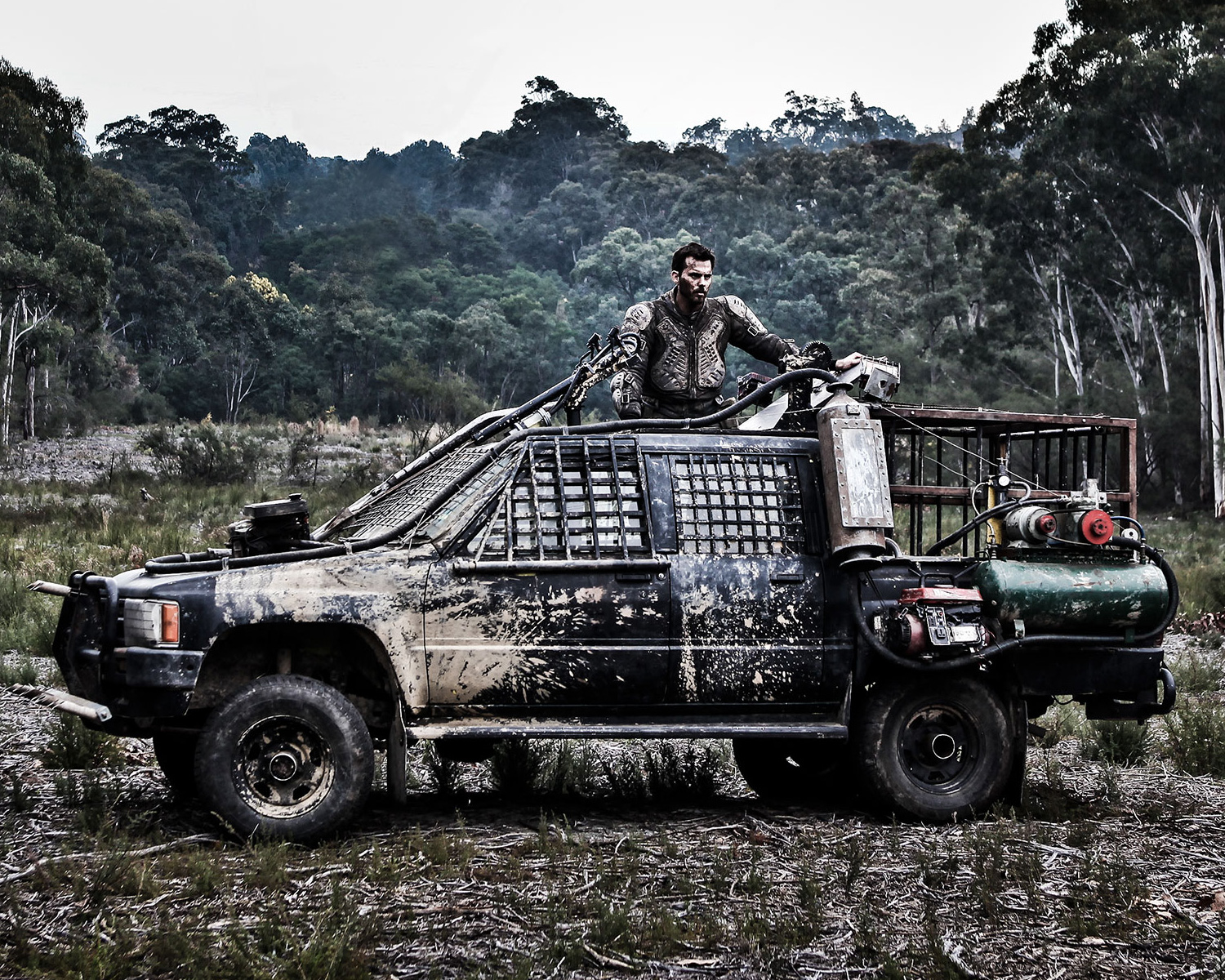
Billed as “Mad Max meets Dawn of the Dead“, Aussie carnage-fest Wyrmwood: Road of the Dead infuses the zombie genre with a fresh dose of DIY ingenuity and creativity, and plenty of gags to sit alongside the bloodshed. The results should prove pleasingly entertaining for those who saw it in cinemas or are seeking it out On Demand or on home video.
FLIKS: When you’re shooting something for an extended period of time, does it evolve quite dramatically from where you started?
KIAH ROACHE-TURNER: Yeah. I mean, we started shooting a completely different script. We basically started shooting what will probably turn into the sequel. Our original idea was set five years into the apocalypse, when there are zombies everywhere, and the last man on earth – it was very Taxi Driver. It was like God’s lonely man surrounded by hordes of flesh-eating creatures, and what he’s got to do on a daily basis to deal with it, so it was almost Grecian. For this guy, on a daily basis pushing that huge rock up the hill, it was how he existed. And we started shooting that, and we realised that we were shooting something very dark and bleak, and probably not very marketable on a global scale. We were very lucky in that we were able to stop production a year-and-a-half into it, and basically rewrite the entire script and make it a lot more action adventure, and go back and tell the origin story of this character, rather than five years in. It’s a completely different film from the one that we started, yeah.
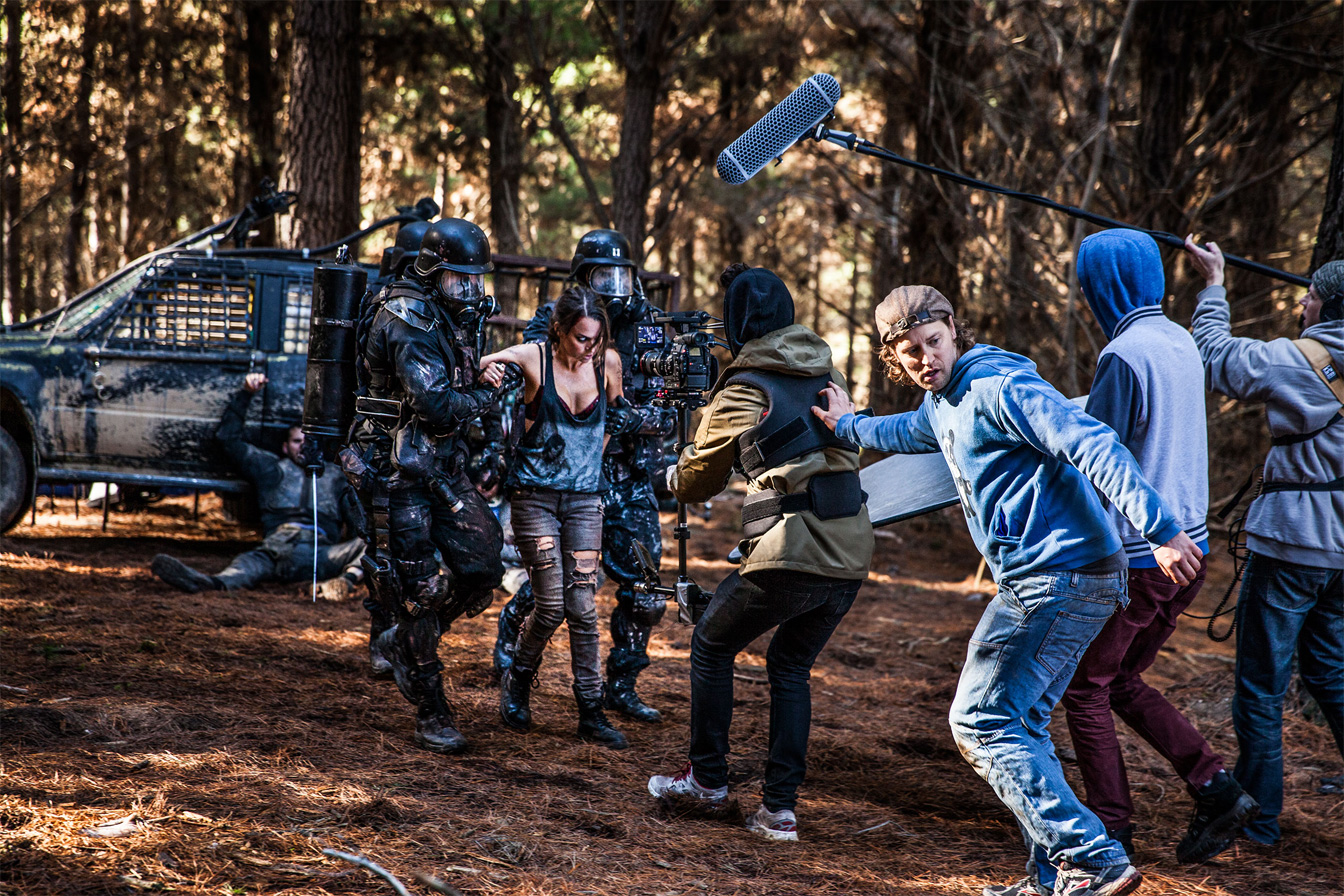
It kind of makes for an interesting chronology within your film. On the one hand, you show the origins of this zombie outbreak happening, but don’t dwell too much on that, in favour of just getting on with it. Then there’s a narrative justification for being in a ‘Mad Max’ world, but it’s only been a matter of hours or days.
Well, from the very start, we wanted to get rid of as much exposition as possible, simply because you have to know what genre you’re playing in, and you have to play to the genre to a degree. The thing is, audiences nowadays are so cine-literate that you can’t just make a realistic zombie film because we’ve seen a realistic zombie film a thousand times. Everybody knows what the set up is, let’s just cut to the chase. There’s zombies everywhere, you know what I mean? It’s some kind of vague, Biblical metaphor, meteors have landed, let’s put the leathers on and get a double-barrel shotgun out, and it just cuts straight to the chase, because we wanted to make the film less about the zombie thing and more about the individual characters’ journeys. That just made more sense. So, exposition to me is just boring. I fast-forward exposition in films, so if I’m not interested, the chances are most of the audience isn’t really interested either. That was the decision that we made, and I guess it worked.
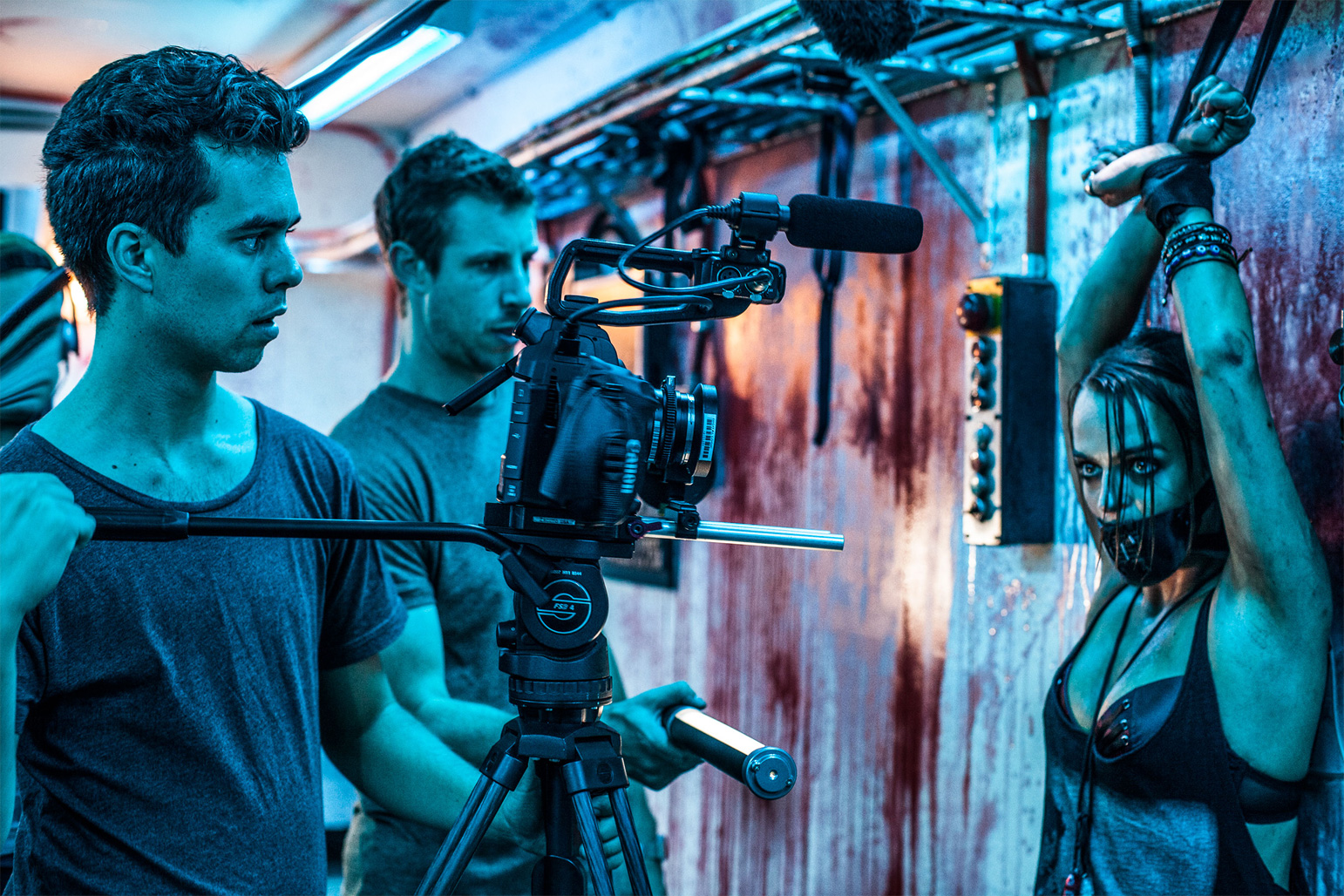
It totally did. It’s also really enjoyable to see the characters have just overcome that shock quite quickly. Obviously, if a zombie were to turn up, you’re not going to deal immediately, but you’re going to twig to what it is fairly quickly.
Yeah, and we did want to make it as realistic as possible, but we didn’t want that to be at the expense of entertainment. You’ve got to kind of just put your tongue in your cheek with a concept like zombies, because it’s just a ridiculous concept anyway. It’s like, “come on, this is not going to win any Oscars. Let’s just make it fun.” And that was what we locked into, let’s make it entertaining first, and then worry about trying to make our little Francis Ford Coppola Apocalypse Now references as minimal as possible, because it’s hard to keep that shit down when you’re an excited new filmmaker and you want to be taken seriously. But at the same time, it’s got to be fun. If it’s not fun, what’s the point?
I imagine the spit-balling process of coming up with some of your crazy zombie ideas must have been pretty entertaining.
Me and my brother, we’ve got pretty weird imaginations and we both smoked a lot of pot in the ’90s, and basically this kind of thing was borne from that. We were just sitting around watching movie, after movie, after movie, and just going, “Dude, you know what would be awesome?” It’s great to be able to take all of that imagination and our shared love of comic books. That aesthetic definitely blended into the film. Our love of those comic characters found their way into the film. It’s funny looking at the film now, they’re all dressed like super heroes, and I didn’t realise that when I was making it, but I’m looking at it, looking at the posters now, kind of going, “These are classic super hero costumes.” The leathers and the mask, and even with the doctor. So, those comic influences are sort of all over it, and that’s kind of our aesthetic, I guess.
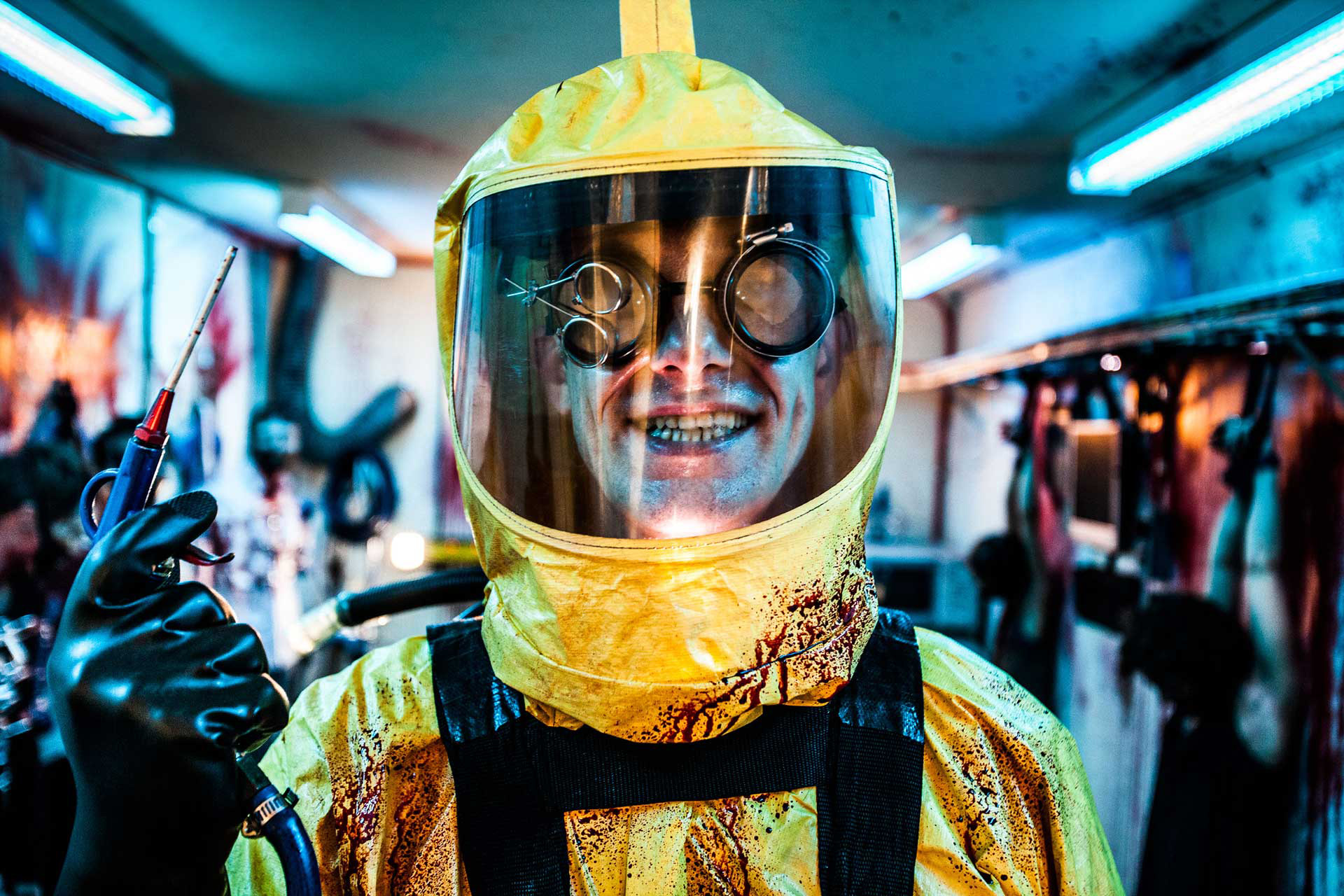
Not to overlook your central cast members, but there’s an insane doctor that’s a scene-stealer as he experiments on people and zombies alike.
I was just very lucky with him. He’s a very classically-trained Shakespearean actor from Sydney, a guy called Baron Schwerp. He was suggested by one of the other actors, and I met with him literally for like ten minutes, we had a beer, had a chat, and I just knew right away that he was locked in. And he was one of the few actors in the entire film that I gave literally no direction to. I just kind of sat him down and we had a chat and I said, “I think we both know what this character is,” and he said, “This is crazy, rock and roll zombie. I can go as big as I want.” And I said, “Please go bigger.” So, he turned up on set with that character fully formed, and just scared the shit out of everybody [chuckles], and I just kind of kept away from him in between action and cut. He was the doctor and he was amazing. Yeah, phenomenal performance. Yeah, very good.
One of the other chronological leaps that I really enjoyed about it was that in what’s quite a relatively short amount of time, there’s this utter lunatic driving around carving up zombies with some mates.
Yeah. It’s funny, actually. We had a few people kind of go, “Well, how would the soldiers know what to do if the thing had just happened and they don’t have enough time to set up a unit like that?” And I’m like, “It’s okay.” There’s a script version of Wyrmwood where I explain that, and I cut it out. Honestly, who cares? Do you care?
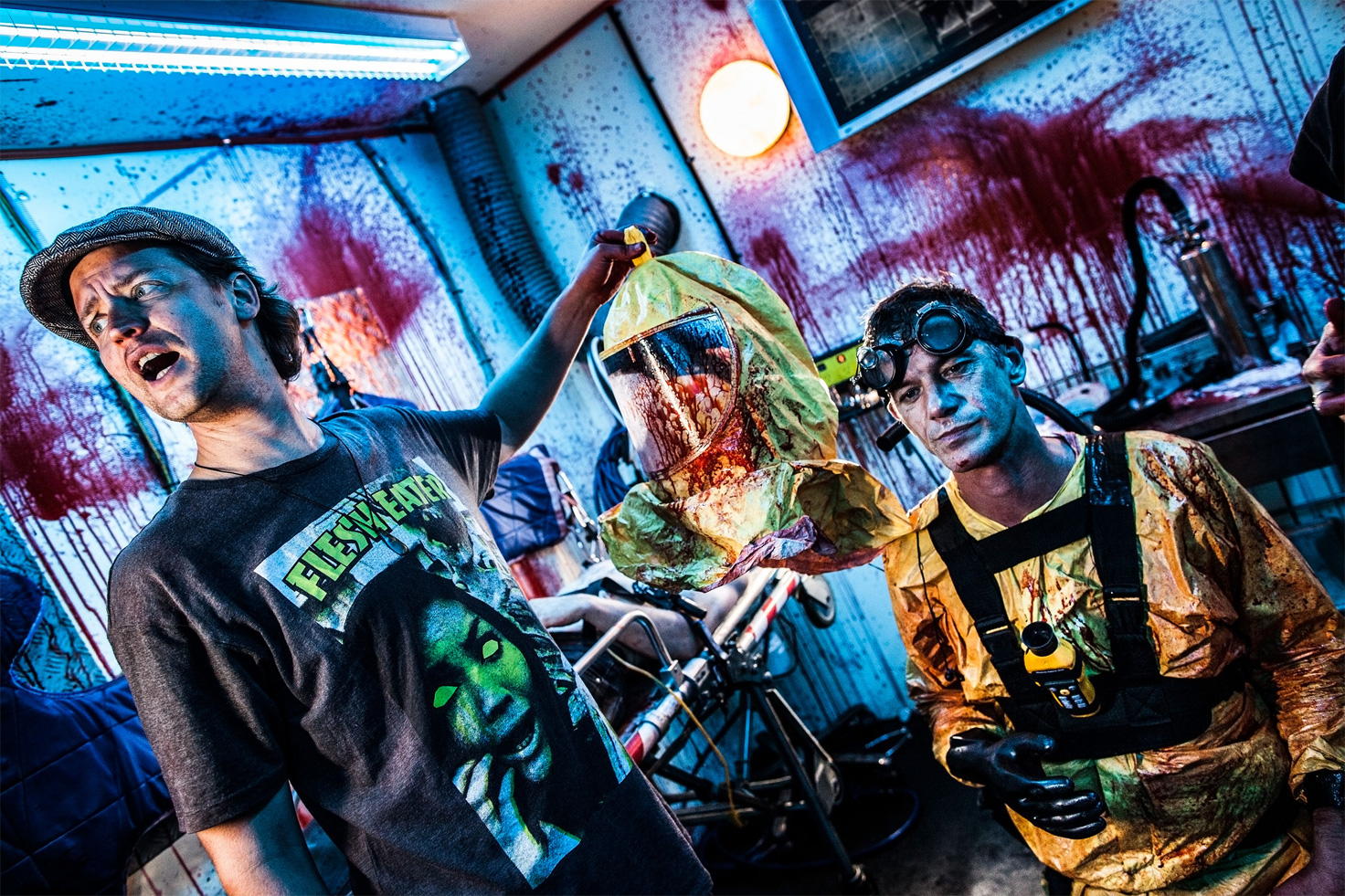
Absolutely not.
Really, it doesn’t matter. It’s a road movie and it moves forward very quickly between A to B, and there’s a whole bunch of crazy characters – they come in and they disappear, and that was what we were going for. We didn’t want to explain anything and we wanted to move so quickly that you didn’t say, “Hang on a minute,” because every time you say, “Hang on a minute,” a head explodes, and you’re distracted. The idea is that you’re just moving down this line as quickly as possible, you know? I think we get away with it.
You really do usher characters out in a pretty rapid fashion at times with some great head explosions you don’t see coming.
Yeah. I mean, a zombie movie is effectively kind of like a war movie. You set up a bunch of characters and you know that half of them are going to die, especially if it’s a halfway decent zombie film. That’s the fun part, is working out who’s going to die. Is he going to die, is she going to die? You really shouldn’t know, but you just know half of the platoon that you set up ain’t coming home, and that’s a fun thing to play with as a writer.
What were some of the most fun kill scenes to come up with?
I was personally really happy with that central head explosion. I was a little bit worried that people would go, “That’s just Pulp Fiction,” but what happened with that was the actor couldn’t finish the film because of scheduling, and I was in this horrible position of like. He was the co-lead, so how do I write him out? We went, “Let’s just blow his head off with a double-barrel shotgun.” And so, I like the fact that that was written out of necessity, but it’s the best scene in the film. That’s the scene that consistently gets the biggest reaction from the audience. So, really that was a complete accident, but it actually made the film probably twice as good because he exited and in came Leon Burchill who is an amazing actor. He bought so much of himself to the role, he bought all the indigenous elements, which I was very, very happy with. Happy accidents, man.
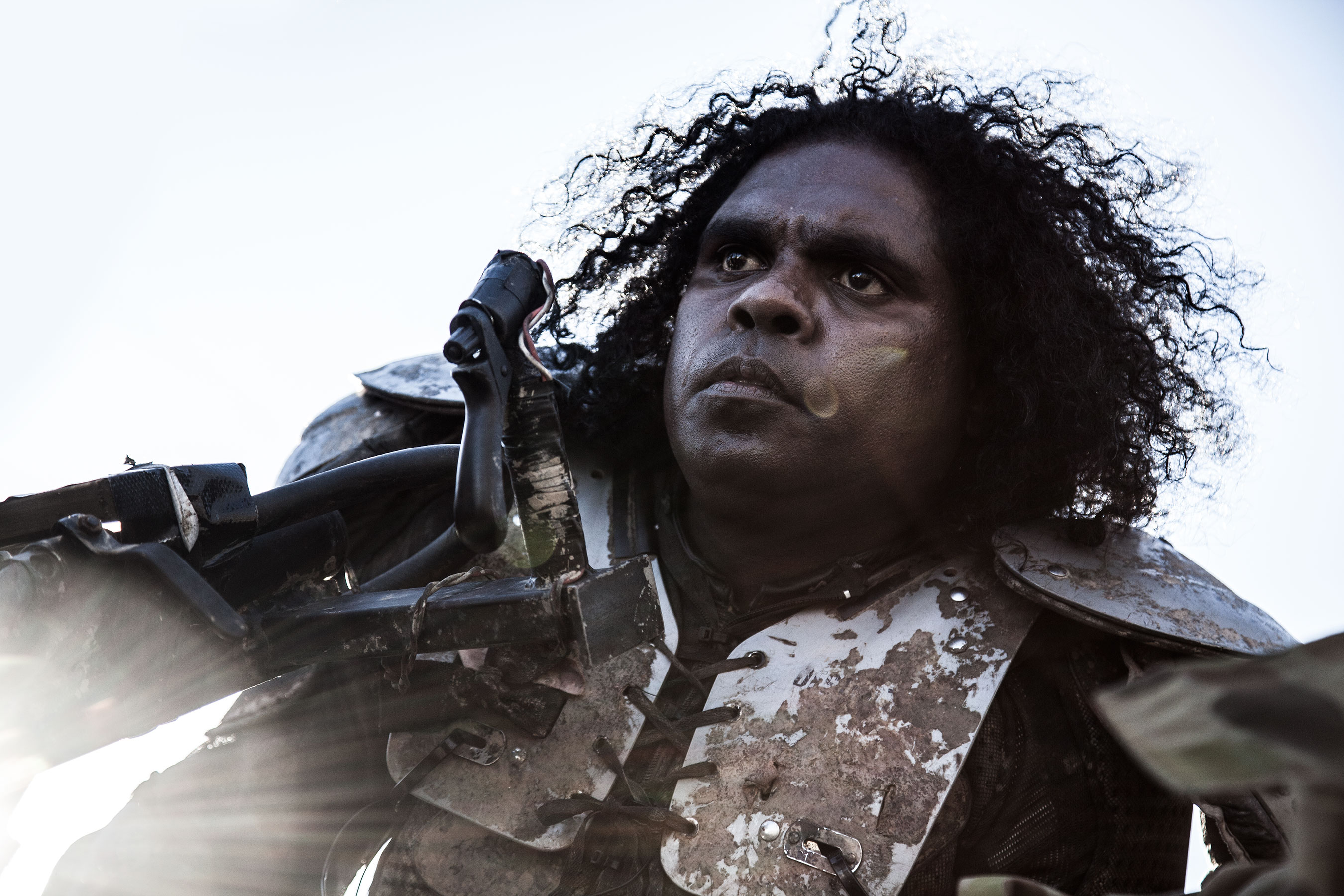
That’s awesome. Have you hung onto many of the props and bits and pieces from the film – like the cars?
Funny you should ask! All of the props are stored in my mum’s garage and the car is stored beside her house, which at first she hated. She was like, “When are you going to move this monstrosity?” But it’s become a bit of a thing in the neighbourhood where people come to her house, and get pictures with the car, and they knock on the door, and they go, “Did you make Wyrmwood?” And she’s like, “My sons made Wyrmwood. Come out the back and I’ll show you the holes in my garage door that they still haven’t fixed yet.” So, she’s getting a bit of a local celebrity about it. Yeah, we’ve got all that stuff stored at our mum’s house, which is funny.
This was ages ago now, but I’m sure that the buzz of taking a film overseas, as a first-time feature filmmaker, must have been awesome.
This is a film that we thought we might have to just upload to YouTube and hope for the best, but it’s found a global audience. All my life, all I wanted to do is to be considered a filmmaker and stuff, and now I’m getting to experience some of the things that my heroes have experienced. Peter Jackson got to go with Bad Taste to Cannes, and they all loved it out there, and Evil Dead just killed it on the festival circuit, and now I’m getting to experience that a bit, and I’m just absolutely blown away. You dream of these things and that’s what you think it’s going to stay as. You think it’s just going to stay as a dream, but when you actually get out there.
We went all over the world before we came back to Australia. I was kind of shitting myself on what the home reaction would be, because I was worried that maybe we had over-egged it or maybe it’s too Australian, or maybe we just weren’t going to hit it with the home crowd. But we had a one-night only screening on 76 screens across the country and killed it. We packed out cinemas all over the country, and I was just like, “Thank fuck Australians like it,” because it’s a film made by Australians for Australians, and it felt really good to have nailed that home crowd. That was a big deal for me.
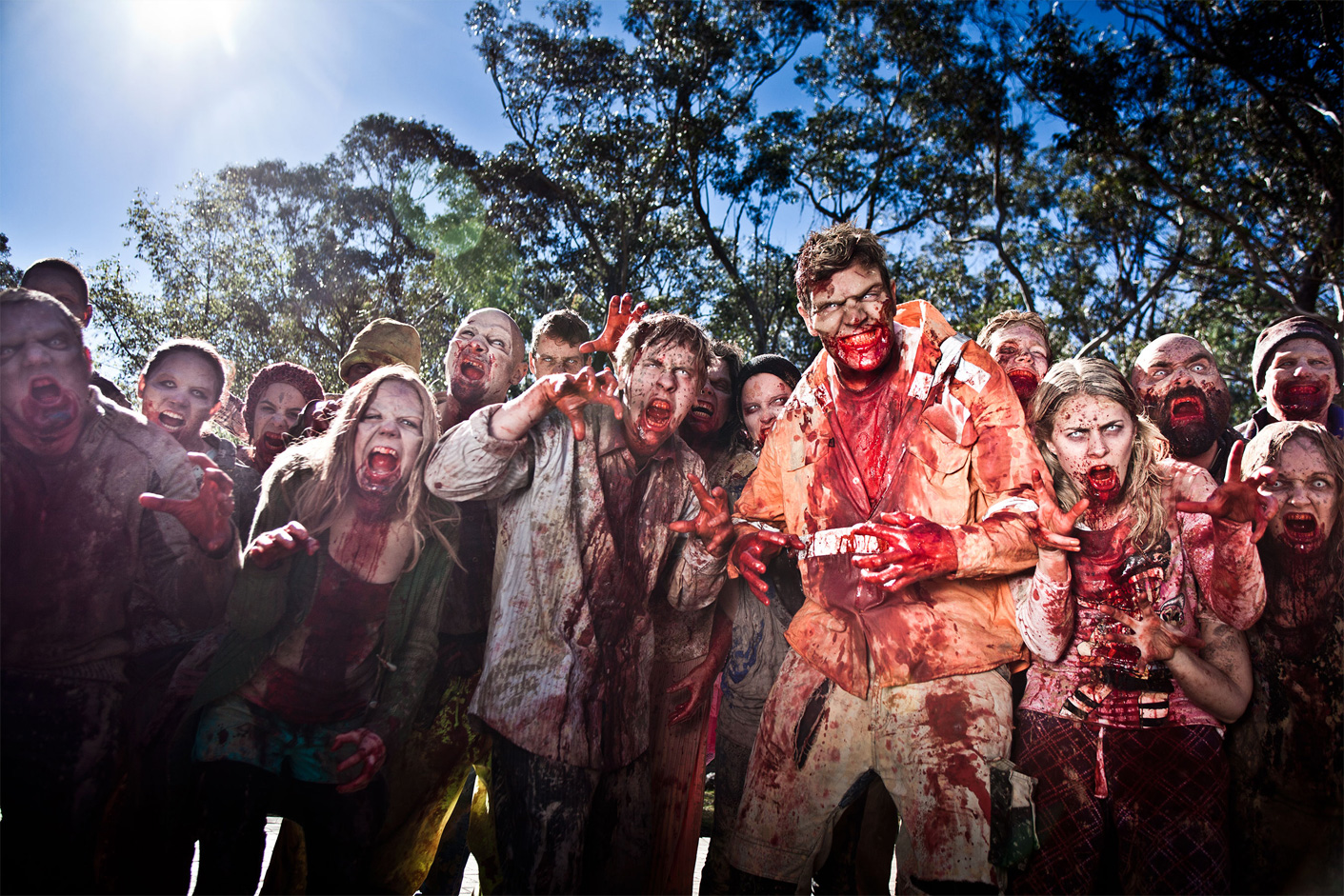
You must be excited about making another picture, but if you wanted to get the same response that you got with this one, you’d almost think, “Let’s not have a finished screenplay again.” That sounds like a very difficult thing to pull off twice.
Yeah, I don’t think I’d do it again. I think we lucked out with Wyrmwood. I’ve just finished the screenplay for our next film which is going to be like this R-rated Ghostbusters, Lovecraft-ian, Stephen King-ish kind of horror film, and I want to get as close to finished as I can before we start shooting. We’ve actually got a script editor on this one, and we’ll bring in as many people as we can, because I’m an okay writer at best, and I think we lucked out with Wyrmwood, so I’d really like to start with a much more polished screenplay on the next one. But we’ll see how we go. It’s basically, I guess, it’s the same process. It’s just the budget grows a little bit, I guess, with every film.
‘Wyrmwood: Road of the Dead’ is out now on On Demand, Blu-ray and DVD

